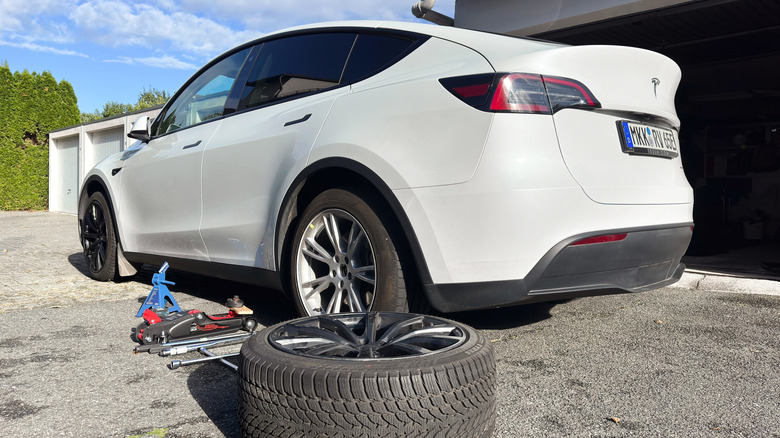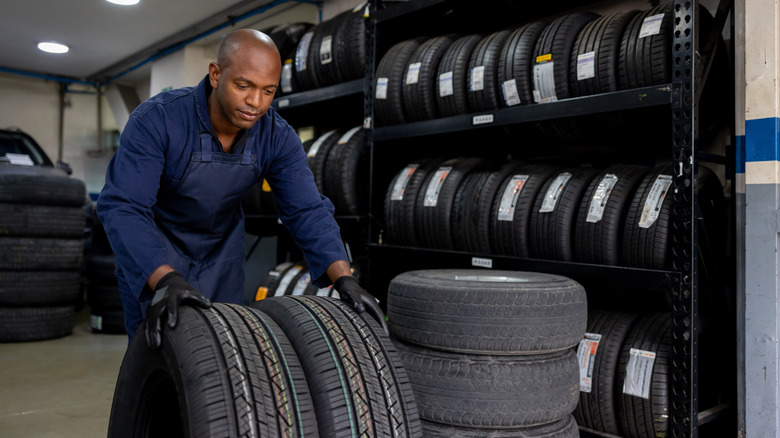What Are EV-Compatible Tires And Can You Put Them On A Non-Elecric Car?
The growing popularity of electric vehicles has led to a burgeoning demand for EV-compatible tires to deliver more range, a quieter ride, and better handling. Electric cars are generally heavier than their gasoline-powered counterparts, and that added weight puts more strain on the tires. Meanwhile, EVs have potent motors that deliver maximum torque from the get-go, enabling them to accelerate faster than a gasoline or diesel car.
If you've driven an electric vehicle, that instant burst of torque never fails to induce a silly, bewildering grin. However, it does it at the expense of all four rubbers touching the ground, which sheds more rubber to deliver traction and cope with the mountains of torque. Those factors are why Teslas require EV-specific tires to cope with the added weight of the vehicle while delivering all-weather traction and a more silent ride.
What sets an EV tire apart from a standard set of tires?
Any new set of EV tires will share a distinguishing characteristic: low rolling resistance or LRR. The rolling resistance is the friction the tire exerts on the ground as it rotates, and lowering this resistance is essential for any EV. Since LRR tires require less force to move over the ground, it could significantly impact the driving range per full charge.
In a 2013 report by Edmunds, reducing the rolling resistance of a tire by 10 percent results in about a 2% improvement in fuel economy in a gasoline or hybrid car. Those small increments are vital to an electric vehicle since the rolling resistance will directly affect the real-world range numbers. According to Consumer Reports, the rolling resistance accounts for 16% of the energy utilized when driving an EV.
Moreover, EV-compatible tires have noise-mitigating materials, proprietary silica-infused compounds, and bespoke tread patterns to maintain a silent ride without penalizing traction and tread wear.
Can I put EV tires on a gas-powered car?
There are many reasons you would not want to put EV tires on your ICE-powered car. EV tires are more expensive than a standard set of rubber, with some costing $150 to $300 more per tire. While the lower rolling resistance would greatly benefit the fuel economy, installing EV tires on a gas car might result in stiffer ride comfort due to the fortified sidewall construction, a common trait new EV tires share to cope with the added heft.
On the other side of the coin, using regular tires on your EV would also be a nightmare, but for very different reasons. For starters, the tire roar would be unbearable on longer drives, and aggressive driving would mean needing a new set of tires sooner rather than later since the rubber would have difficulty coping with the heft and instant torque. When replacing the tires on an EV, we recommend using the same set of tires from the factory. If you want to try a new or different brand, it's best to conform to the manufacturer's recommendation to maximize your EV driving experience.


